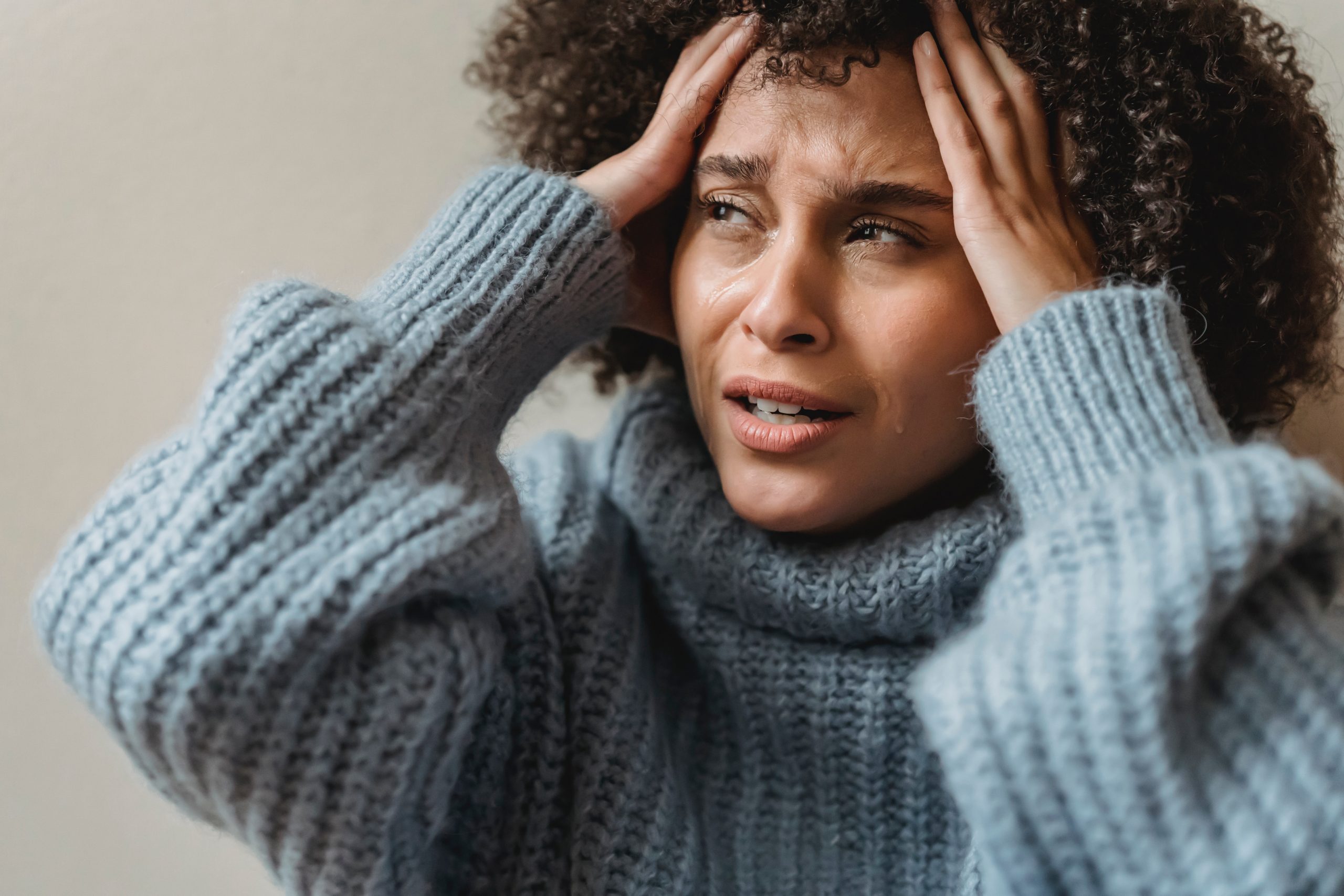Luck’s Yard Nutritional Therapist, Fiona Hayers explains the links between headaches/migraines and the menopause:
The menopause actually refers to the time 12 months after a woman’s last natural period. But generally it is used to describe the time in life when periods become less regular and other symptoms occur.
These symptoms result from changes in the ovaries that can start around 10 years before a woman’s last menstrual cycle. This transitional period is called perimenopause which often begins between ages of 45 and 55 but can begin much earlier for some women.
During perimenopause, the body’s production of oestrogen and progesterone, two hormones made by the ovaries, varies greatly. Most of the symptoms women experience are due to the changes of these hormones, oestrogen in particular.
Commonly the first sign is that your periods can go a little crazy – longer time between periods, lighter or much heavier flow and worse PMS than ever before! Other common signs associated with perimenopause are night sweats, hot flushes, disrupted sleep, mood swings, frequent cystitis, weight gain and difficulty losing weight.
But did you know that headaches and migraines can also increase in frequency and intensity during perimenopause? This may be especially true if you used to suffer from hormone related headaches in the past. The good news is that most women find they reduce drastically and sometimes stop all together once the hormones have become stable post menopause.
The increase in headaches and migraines is thought to occur with a sudden drop in oestrogen levels after a period at higher levels – this explains why women sometimes experience headaches just before their period as oestrogen levels have fallen from a high to a low level quite sharply. But this normal pattern seems to go a little haywire during perimenopause and women experience numerous peaks and troughs with no obvious pattern at all ……end result? Increase in number of headaches and migraines at seemingly random times.
So, what can you do to reduce the frequency and severity of these headaches and migraines?
Firstly, you can avoid foods or lifestyles which can increase these hormone fluctuations, for example:
- Eat regular meals to keep your body balanced (3 smaller, evenly paced meals is better than 1 large evening meal) and avoid skipping meals
- Keeping hydrated with water helps to get rid of hormones that have done their job
- Reducing caffeine can also be beneficial
- Have a go at eating 30 plants each week – eating lots of veg and especially broccoli, cauliflower and Brussel sprouts can be super helpful for balancing hormones
- Sprinkle seeds and chopped nuts on all your salads, porridge, casseroles….in fact everything! Try including ground flaxseeds in particular.
Secondly you can include foods which can help to reduce the pain. These include:
- Drizzle your food with extra virgin olive oil and you can also use this to cook with (avoid all cooking at high temperatures regardless of oil used)
- Include oily fish each week – 3 times would be fabulous but you may need to consider supplementing after discussion with a professional
- Add turmeric to your cooking as there is some evidence this can help to reduce inflammation
- Avoid processed foods as they normally contain high amounts of saturated fats which can increase the inflammation and pain signalling.
And lastly, you can include some relaxation techniques to increase relaxation of your muscles and your mind! Try having a warm soak in Epsom Salts, checking in with your breathing 10 times across each day or do an App based Pilates or Yoga class. Honestly, these techniques can really help with reducing stress which can worsen hormone fluctuations but they are easily neglected or forgotten. Choose just one to include each day.
If you are really struggling with headaches or other possible menopause symptoms then it is worth considering working with a professional to create a tailored nutrition and lifestyle plan. I know you don’t have to look far on social media or the web to find the ‘best diet for menopause symptoms’, but the truth is that the answer does not lie in fixing your symptoms one by one but by looking at the whole of you as an individual and we are all very, very different. So, spending resources on a personalised plan beats wasting your time and money on what may have worked brilliantly for a different aged lady living a completely different life, often in a different country! Give me a call on 07734111347 or email on Fiona@nourishfromwithin.co.uk if you would like to explore your personal plan further.




